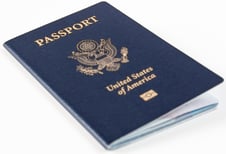 Many retirees love to vacation in the summer months, to take advantage of the warm, sunny weather — especially if they live in the northern half of the country and have been cooped up indoors all winter. Without ice and snow to worry about, there are fewer concerns about flight delays or poor driving conditions.
Many retirees love to vacation in the summer months, to take advantage of the warm, sunny weather — especially if they live in the northern half of the country and have been cooped up indoors all winter. Without ice and snow to worry about, there are fewer concerns about flight delays or poor driving conditions.
Traveling is also a wonderful way to stay active and keep your mind engaged. The world's large enough that no one has ever seen it all in a lifetime, so no matter how many days you spend away, there will always be some new and exciting destination for you to explore. As PBS travel expert Rick Steves said, for many retired people, "Travel is a fountain of youth."
If you’re a senior living in Cincinnati who wants to travel this summer, now’s the time to start preparing your trip. Let's take a look at some tips and suggestions you could use to plan a great getaway.
When and where should you go?
That depends on your tolerance for heat, humidity and crowds. It might also depend on your budget for air fares, hotels and ground transportation.
Naturally, sunny weather and kids' school vacations cause a large spike in the number of tourists during the summer, so air fares and hotel rates are typically higher — especially for popular destinations.
If you plan to visit the lower latitudes, Steves recommended planning your vacation for "shoulder season," corresponding to April through mid-June, or September through mid-October. During these months, most children are still in school, it's warm enough to wear shoulder-bearing tops, but not unbearably hot or humid in tropical and subtropical climates.
Another consideration, though, is severe weather. Don’t plan to travel in September or October to the Caribbean, anywhere along the Gulf of Mexico or Mexican Pacific coast or the southern half of the Eastern Seaboard — that's the height  of tropical hurricane season, which makes flight and cruise cancellations more likely. Better to visit those locations in the spring.
of tropical hurricane season, which makes flight and cruise cancellations more likely. Better to visit those locations in the spring.
For higher latitude locations, like Canada, Scandinavia or Alaska, a trip at the height of the summer might give you more enjoyable weather.
And don't forget, if you plan to visit somewhere in the Southern Hemisphere, their seasons are reversed from ours. Visiting Australia in July? Pack a sweater.
Do you need travel insurance?
You might, if you're traveling out of the country — especially if you depend on Medicare or Medicaid for your primary health coverage. Neither program covers health care rendered outside the United States. Some private Medicare/Medicaid supplemental plans do, but you need to check with your insurer to find out all the restrictions.
You should also consider budget. Travel insurance for seniors tends to be more expensive than it is for younger people, because older people are more likely to need it.
If you have a pre-existing health condition, that can drive the cost up even more, or even exclude you from coverage. Read the policy provisions carefully, ask questions and ensure that you fully understand what you would be covered for before you purchase.
Have a two-week supply of your medications in your carry-on.
People don't always plan ahead for the possibility of a checked bag being misrouted, damaged, lost or destroyed in transit. But such things can happen. So can flight, cruise or train cancellations that could leave you stranded in a hotel or airport.
If you depend on daily medications, pack enough of them to last you two weeks in your carry-on. Pack your basic toiletries, a change of clothes or two and a pair of comfortable shoes.
Be smart about how and where you carry money and IDs.
 Never pack your money, credit cards, ID, passport or traveler's checks in your checked luggage — you need to have these available to you at all times.
Never pack your money, credit cards, ID, passport or traveler's checks in your checked luggage — you need to have these available to you at all times.
Consider buying a flat, necklace-type wallet to wear under your shirt to deter pickpocketing or inadvertent loss of your most important items. Keep your passport, ID cards, and cash or traveler's checks in it.
You'll want to have something easy to access for quick purchases, though, so keep your credit card in your front pocket. You can easily cancel or replace them if lost or stolen.
Check for senior discounts.
Many hotels, airlines, rail lines and restaurants at home and abroad offer discounts for retirees. Just remember that these aren't always available, and they're not always available to foreigners when you're overseas.
If you have mobility difficulties, plan your sightseeing stops in advance.
Check to make sure that the places you wish to visit have elevators, ramps, wheelchair rentals, guidebooks or tours for visually-impaired or hearing-impaired guests, or other accommodations that you, or your travel mates, would need. There's nothing worse than getting to a long-desired destination and finding out that touring it would be physically difficult for you.
Travel planning is a snap if you think ahead, anticipate snags and build flexibility into your schedule.
Remember, when traveling, changes to schedules, unforeseen circumstances and other delays can — and do — happen.
The best advice for traveling seniors? Be flexible, stay positive and cheerful and remember that even a cancelled flight can lead to an unexpectedly pleasant stay in an unexpected stop.
Stuck in an airport in Tokyo? Hit up the karaoke bar. Rerouted to Wichita? Go out for a nice steak dinner. Just do something you'll remember and enjoy, wherever you end up.












